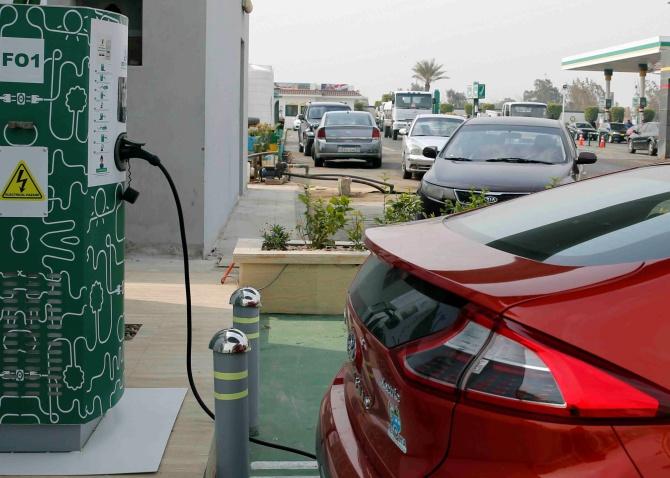Operators are likely to charge users on the basis of the time a vehicle spends at the station to get charged and not on the basis of power consumed.
This is because some batteries take longer to charge, even as the power consumed may be similar to a fast-charging battery.

As India gets ready to take baby steps to electric mobility, companies in the charging infrastructure are drawing contours of charging stations. The government has initiated a process to define standards and guidelines for electric charging stations.
One of the key areas to watch out will be the charges that consumers will have to pay for using these charging station.
Operators are likely to charge users on the basis of the time a vehicle spends at the station to get charged and not on the basis of power consumed.
This is because some batteries take longer to charge, even as the power consumed may be similar to a fast-charging battery.
"If you charge at per unit of power consumed the price will be the same for slow and fast-charging batteries. If a vehicle spends longer time at a charging station it means a lower capacity utilisation for the operator," said Awadhesh Kumar Jha, vice-president (charge & drive and sustainability) at Fortum India, part of the Finnish firm that operates more than 2,100 charging points globally.
Jha insists that charging should be considered as a service and not just consumption of power as the operator also makes investment in land, maintenance, back-end support and other conveniences.
“The government seems to have agreed that it will be treated as a service. It should only determine the price at which a power distribution firm sells electricity to charging station,” he added.
Jha said consumers might have to pay a different charge at different stations depending on the operator's cost of running the facility.
"A station at Manesar could have a lower charge than the one in central Delhi, as costs will vary."
Fortum has set up two charging points with four outlets in the capital as a demonstration project for use of government departments.
But beginning April, the company will roll out stations that will be open to the public.
It aims to set up about 150 charge points across multiple stations in 2018. These electric vehicle charging stations will be an unmanned set up offering a controlled access to users.
Fortum is testing an app that will soon be rolled out to its subscribers where one can locate the stations and the points that are free for use on a real time basis.
The access control feature will allow only subscribers to activate a charge point by use of an RFID tag.
The user’s account linked to his payment mode will be charged. Users will be able to see their charge history including the amount paid.
The department of heavy industry had brought a draft notification for charging standards early this month to seek comments from stakeholders before rolling out the final standards.
The draft states that different kinds of charging standards- Japanese, European and Chinese- can coexist together in India.
This will allow global auto makers to take their electric projects in India without any significant modification in their manufacturing process. These global standards meet requirement of high voltage vehicles.
Bharat standards for the existing fleet of vehicles -- from local makers like M&M and Tata Motors -- were notified earlier. Fortum’s existing demo charges are Type-2 AC chargers which can charge existing Indian cars as well.
Jha says the different charging points are similar to different dispensers at current fuel pumps dispensing petrol, diesel or gas.
Dalip Sharma, managing director of Delta Electronics India, a manufacturer of charging points, said anybody making investments in charging infrastructure would assume that he may not be able to even service 50 vehicles per day initially at a station. It will take at least a couple of years before the business will reach any sizeable scale.
He, however, said that once the market opens up this will bring a huge opportunity.
"The national capital region alone may require 800-1,000 charging stations," said Sharma.












 © 2025
© 2025